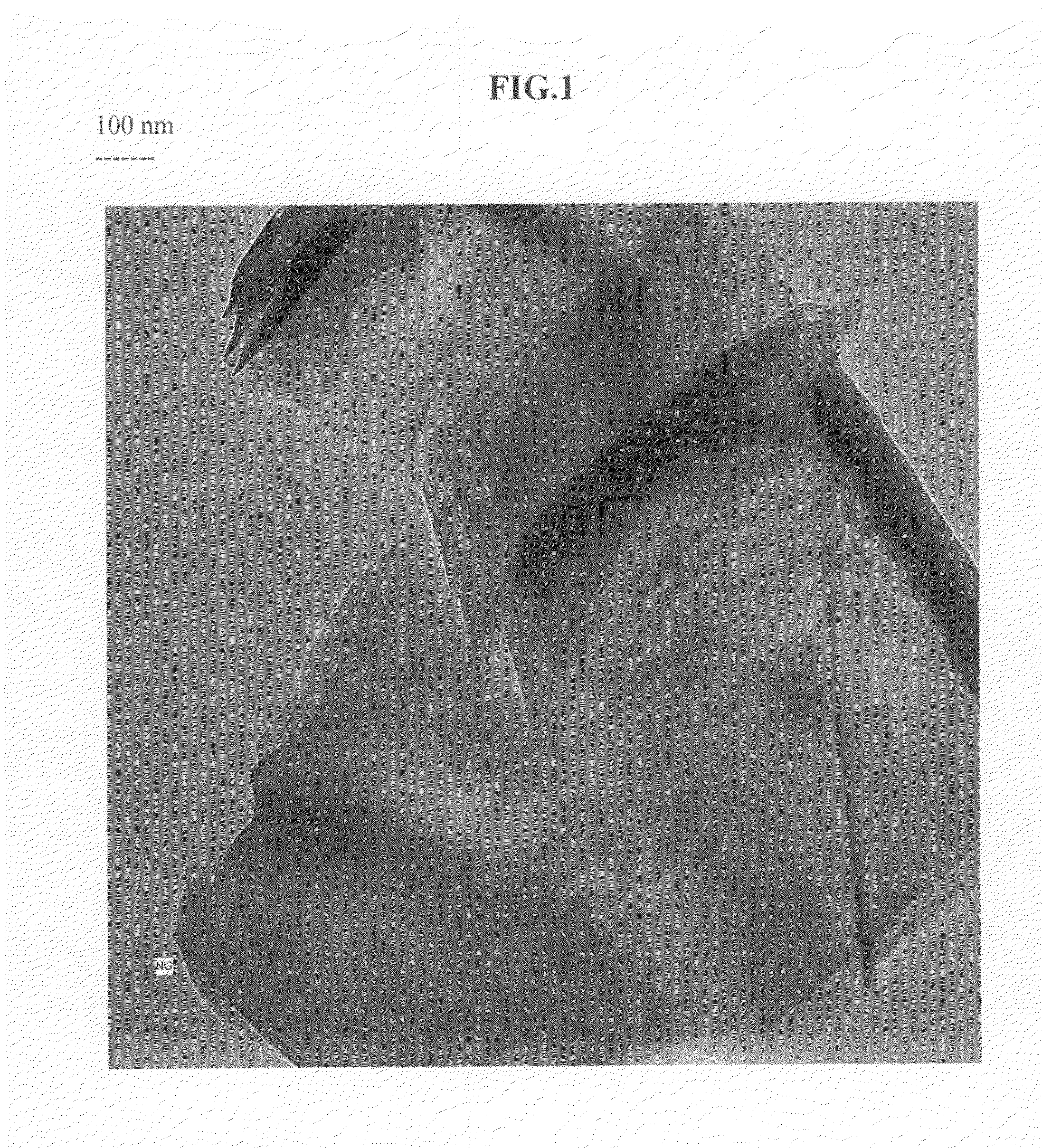Method of producing exfoliated graphite, flexible graphite, and nano-scaled graphene platelets
a technology of flexible graphite and nano-scale graphene, which is applied in the direction of carbon compounds, inorganic chemistry, textiles and paper, etc., can solve the problem of not reporting on the utilization of ultrasonic waves in directly exfoliating graphite or graphite oxide, and achieves high conductivity and spread.
- Summary
- Abstract
- Description
- Claims
- Application Information
AI Technical Summary
Benefits of technology
Problems solved by technology
Method used
Image
Examples
example 1
Nano-Scaled Graphene Platelets (NGPs) from Natural Graphite Flakes
[0047]Five grams of graphite flakes, ground to approximately 20 μm or less in sizes, were dispersed in 1,000 mL of deionized water (containing 0.1% by weight of a dispersing agent, Zonyl® FSO from DuPont) to obtain a suspension. An ultrasonic energy level of 85 W (Branson S450 Ultrasonicator) was used for exfoliation, separation, and size reduction for a period of 2 hours.
example 2
Nano-Scaled Graphene Platelets (NGPs) from Natural Graphite Flakes (No Dispersing Agent)
[0048]Five grams of graphite flakes, ground to approximately 20 μm or less in sizes, were dispersed in 1,000 mL of deionized water to obtain a suspension. An ultrasonic energy level of 85 W (Branson S450 Ultrasonicator) was used for exfoliation, separation, and size reduction for a period of 2 hours.
example 3
Further Shear Treatment
[0049]A small portion of the exfoliated graphite particles (from Example 2) was then ball-milled in a high-energy plenary ball mill machine for 24 hours to produce nano-scaled particles with reduced length and width.
PUM
 Login to View More
Login to View More Abstract
Description
Claims
Application Information
 Login to View More
Login to View More - R&D
- Intellectual Property
- Life Sciences
- Materials
- Tech Scout
- Unparalleled Data Quality
- Higher Quality Content
- 60% Fewer Hallucinations
Browse by: Latest US Patents, China's latest patents, Technical Efficacy Thesaurus, Application Domain, Technology Topic, Popular Technical Reports.
© 2025 PatSnap. All rights reserved.Legal|Privacy policy|Modern Slavery Act Transparency Statement|Sitemap|About US| Contact US: help@patsnap.com

